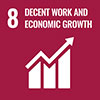Specific risks of AI and potential effective regulation
Algorithmic management poses significant risks in the workplace. On one hand, it facilitates discrimination by relying on opaque patterns, making it difficult for “victims” to detect and prove unfair treatment. On the other hand, it intensifies work pressure and diminishes autonomy, which harms the physical and mental health of staff. Simultaneously, the ability to collect and process data in bulk provides the company with extensive control. Consequently, workers’ bargaining power diminishes, making it harder to participate in the distribution of productivity gains. Technology is also used offensively to monitor and press down on wages. With increasingly advanced algorithms, predicting and restricting the emergence of union or collective claims leaders becomes feasible. This phenomenon is exacerbated by productive outsourcing, as major companies maintain strict control through technological platforms while evading legal liabilities. To address these challenges, the text proposes an obligation to negotiate and agree with workers’ representatives, along with the implementation of recurring audits of algorithms to protect dignity and labour rights.
SDG



 Adrián Todolí
Adrián TodolíHe has published over 150 research papers, including articles in indexed journals, books, and book chapters. He has also received over 100 invitations to lecture at institutions, unions, employers, work inspections, etc. He has published four monographs on salary issues, covering topics from salary reviews to allowances and bonuses, with specific work focusing on public sector remuneration. He has received the award for Best Youth Attorney from the Spanish Labor Forum (FORELAB), and the award for Best Research in Labour Law from the Spanish Association of Labour Law and Social Security (AEDTSS) on two occasions (2015 and 2016). His international visibility is also demonstrated by several research stays at prestigious institutions, including the University of California, Berkeley – School of Law, the University of Cambridge- School of Law, and the Max Planck Institute for Social Law and Social Policy.



